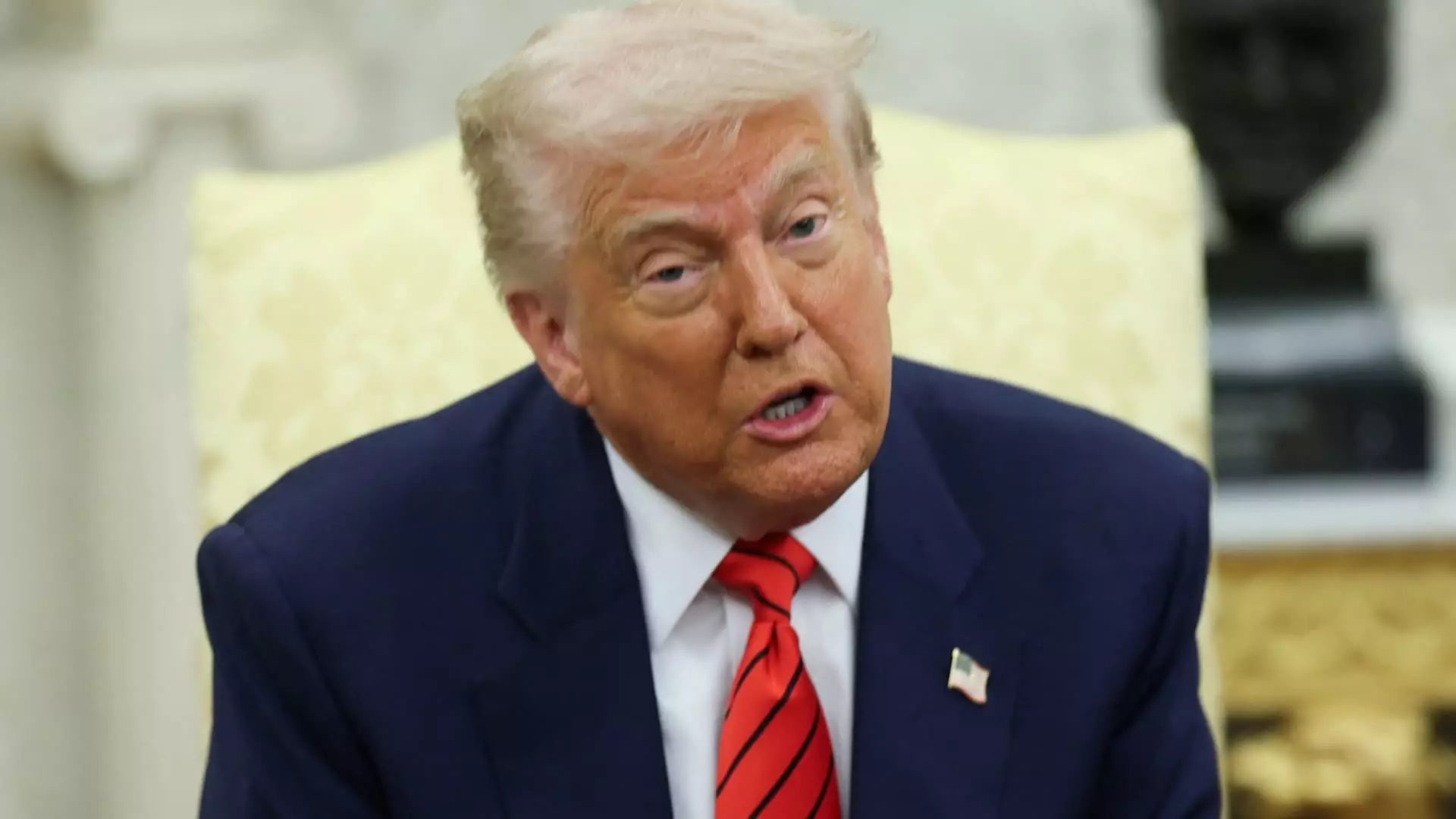The trade policies of the Trump administration represent some of the most contentious and paradoxical processes ever seen within American economic governance. President Donald Trump’s unexpected dismissal of formal trade deals has not only raised eyebrows but also left critics bewildered about the actual strategy—if there is one—in play. During a recent meeting, Trump claimed that the United States doesn’t need to “sign deals” while simultaneously creating a narrative of being overwhelmed with requests for such agreements. This contradiction is emblematic of a broader mismanagement of trade policy that jeopardizes not only international relationships but also the stability of the U.S. economy.
Contradictions at the Core
Trump’s frustration during a White House meeting with Canadian Prime Minister Mark Carney encapsulated the internal dissonance of the administration’s approach toward trade. While the President’s inner circle, including Treasury Secretary Scott Bessent, publicly asserted that the U.S. was close to securing several bilateral trade agreements, Trump seemingly denounced the very idea of signing deals altogether. How can a government operate within the realm of trade while sending mixed signals to both domestic markets and international partners? This lack of clarity has real implications—investors and businesses are left in a state of limbo, unable to make informed decisions that could affect employment and market stability.
Trump’s assertion that “we don’t have to sign deals, they have to sign deals with us” points toward an egocentric view of international trade that discounts the reciprocal nature necessary for successful global economic relations. In doing so, he alienates potential allies and undermines the trust required for negotiations to advance. Trade is a delicate ecosystem—treating it as a zero-sum game could lead to detrimental outcomes for all parties involved.
Trump’s Market of Illusions
The idea that the U.S. should position itself as a “super luxury store” offers little comfort to an economy already grappling with the weight of tariffs and declining purchasing power. The belief that foreigners will come flocking to the market simply because of its status overlooks fundamental economic principles. Consumer trust, availability of products at varied price points, and sustainable sourcing matters more than the concept of luxury branding. By prioritizing a lofty vision without grounding it in practical reality, Trump’s administration risks isolating American consumers while subjecting them to higher costs.
Additionally, Trump claimed he may produce “100 deals” eventually, suggesting a level of optimistic firepower that seems too distant to be credible. The outcome of such optimism is a ticking clock—markets responded negatively to these announcements. Investors are not merely looking for words; they want solid frameworks and details that can substantiate economic growth.
Flawed Promises and Uncertain Outcomes
The inability of the Trump administration to deliver on promises of immediate trade deals with countries like India, South Korea, and Japan will only continue to sow distrust among economic stakeholders. Each announcement of “potential deals” without concrete action only adds layers of doubt. The increasing number of vague statements from high-ranking officials shows a pattern of overpromising and underdelivering, raising concerns that this administration has no coherent trade strategy in mind.
As new tariffs walk hand-in-hand with these unfulfilled promises, a dark cloud looms over the U.S. economy. Confusion reigns supreme, leaving both small businesses and major corporations wrestling with unpredictability. When tariffs kick in, the full brunt of the trade slowdown will undoubtedly take its toll, potentially pushing many industries further into chaos.
The Perils of Nationalistic Trade Sentiment
President Trump’s detached approach to international trade is rooted in a nationalistic ideology that sees foreign partners as adversaries rather than collaborators. This dangerous framing not only exacerbates tensions but can lead the U.S. to step into a fiscal quagmire. True economic strength arises from alliances and mutually beneficial negotiations. However, the current posture under the Trump administration runs the risk of creating a self-imposed economic isolation.
As the world becomes increasingly interconnected, maintaining an exclusionary stance toward trade could amplify the repercussions of global economic shifts. The belief that the U.S. can stand alone requires a reevaluation—without cooperation, all nations stand to lose.
As we navigate these tumultuous times, the missteps of the administration remind us of the importance of coherent, strategic economic policies built on collaboration rather than exclusion. The trade landscape we traverse today must foster understanding rather than indulge in hubris.

